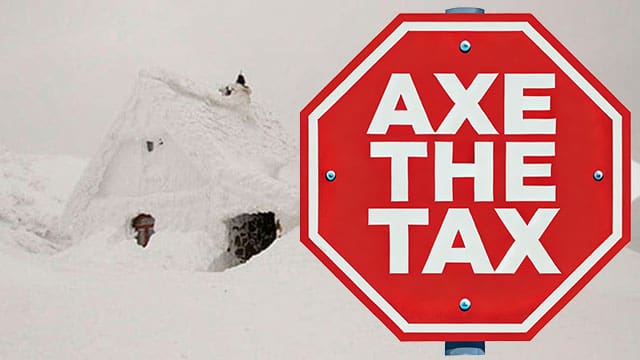Kinew must demand that the next federal Liberal leader “axe the tax”

For interview requests, click here
Prime Minister Justin Trudeau is heading for the door.
That creates room for government MPs to listen to people back home, move beyond party dogma and do the right thing for their constituents.
Manitoba Premier Wab Kinew can help them do that.
Kinew knows how much the carbon tax is costing Manitobans. In a year-end interview, Kinew highlighted that Manitoba doesn’t “need that carbon tax here.”
 |
| Recommended |
| PBO confirms carbon tax hitting Canadians hard
|
| Carbon pricing is finally hitting the political wall. So what comes next?
|
| The case for a carbon tax in Canada is crumbling
|
“We’ve seen what a difference it’s made for your budget on the provincial level to get rid of the fuel tax,” Kinew said. “Imagine what would happen if that carbon tax got taken off to help you and your family.”
The carbon tax costs families a lot now and the costs will keep piling on for Manitoba taxpayers the longer it sticks around.
This year, Ottawa’s carbon tax costs 17 cents per litre of gasoline and 21 cents per litre of diesel.
That means every time you fill up a minivan you will be paying $12.24 in carbon tax. To fill up a diesel pickup you’ll be on the hook for $28.35 every time you head to the pump.
And it’s set to keep taking more from your wallet because the carbon tax is scheduled to go up every year. On April 1, 2025, the federal government is hiking it to 21 cents per litre of gas and 26 cents per litre of diesel. That will add $3 more in carbon tax to the minivan fill-up and almost $7 for the pickup.
If a two-car family fills up that minivan and pickup truck every other week, the carbon tax will cost them about $1,300 in the 12 months after April 1.
Once you get home from the gas station, the carbon tax follows you through the door and is added to your home heating bill.
The federal government charges a carbon tax of about 15 cents per cubic metre of natural gas. Most Manitobans use natural gas to heat their home and use an average of 2,091 cubic meters per year. That means Ottawa is charging you $318 just in carbon tax to heat your home this year. Next year, it will be $379; by 2030, you’ll be paying $677.
There are also indirect costs due to the carbon tax.
Take food, for example. Farmers have to pay the carbon tax to dry grain and heat their barns, increasing their costs. Truckers then have to pay the carbon tax while delivering food to the store. All those increased costs for businesses obviously increase your cost at the till.
Despite all these costs, Trudeau still argues that the carbon tax makes most Canadians better off because of the rebates.
The math doesn’t work out that way. The Parliamentary Budget Officer crunched the numbers and found that the carbon tax will cost the average Manitoba family more than they get back in rebates. In 2025, the carbon tax will cost the average Manitoba family $274 more than the rebates. By 2030, it will be $693.
The carbon tax also makes Manitoba businesses less competitive with the world. Farmers in North Dakota don’t pay a carbon tax to heat their barns, so Manitoba farmers lose every time. Most countries in the world, including big polluters like the United States, Russia, and India, don’t even have a carbon tax.
Manitobans need to get to work and heat their homes. They need a break from the carbon tax, and they need it now.
The carbon tax costs Manitobans money every day. On behalf of Manitobans, Kinew needs to demand that the new Liberal leader commits to axe the carbon tax.
Gage Haubrich is the Prairie Director for the Canadian Taxpayers Federation.
Explore more on Manitoba politics, Kinew government, Carbon tax, Taxes, Manitoba taxes
Troy Media is committed to empowering Canadian community news outlets by providing independent, insightful analysis and commentary. Our mission is to support local media in building an informed and engaged public by delivering reliable content that strengthens community connections, enriches national conversations, and helps Canadians learn from and understand each other better.

